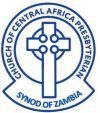
Zambia is a landlocked African country with
a population of 16.2 million people and 752,614 square kilometers of land (an area slightly larger than the state of Texas in the United States).
Several countries border Zambia, including the Democratic Republic of Congo, Tanzania, Malawi, Mozambique, Zimbabwe, Botswana, Namibia, and Angola, and the majority of people identify as Christian (50%-75%).
The official language of Zambia is English but the primary vernacular languages spoken include Bemba, Kaonda, Lozi, Lunda, Luvale, Nyanja, Tonga, and 73 other indigenous languages.
Zambia is known for Victoria Falls (an 108 m waterfall on the border of Zimbabwe) and diverse wildlife available in expansive national parks (including Kafue National Park and South Luangwa National Park).
The country has had tremendous economic growth over the last decade because it’s Africa’s second largest producer of copper after the Democratic Republic of Congo.
Zambia has also maintained peace and political stability since the country gained its independence from Britain in 1964.
However, despite the country’s economic growth and political stability, the people of Zambia still face many challenges, and the government as well as the church is striving to make a contribution to Zambian society.
According to Unicef, two-thirds of Zambians live below the poverty line.
Many Zambians, including members of CCAP Synod of Zambia congregations, face issues stemming from poverty, including lack of access to healthcare, limited education opportunities, and food/clean water insecurity. Even though Zambia has seen a decline in child mortality in the last 5 years, maternal and child mortality are still high.
An estimated 4.8 million Zambians live without access to clean water and 6.6 million Zambians do not have access to sanitation.
HIV/AIDS is still an enormous issue in Zambia, with 1.2 million people in the country living with the disease. Zambia also has 6 million children under the age of 18 and, unfortunately, more than a quarter million of these children do not attend school.
Therefore, because of the large amount of challenges CCAP congregation members face, the CCAP Synod of Zambia has vowed to not only address the holistic spiritual needs of its congregations but also address social and financial issues facing Zambians today.
